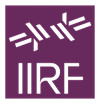Laurent Gbagbo and the evangelical church in Côte d’Ivoire
Ambiguous political affinities
Keywords:
Laurent Gbagbo, Alassane Ouattara, prophecies, political, religious, evangelical Church, globalisationAbstract
This article attempts to understand and analyse the relationship between politics and religion in Ivory Coast. The relationship between the former President Laurent Gbagbo and the Evangelical Church expresses this relationship that has always existed between the two entities in a spirit of religious freedom recognized by the Head of the State by all citizens and the impact that this relationship had on the evolution of the Ivorian crisis. Since colonial times to the time of independence, from Felix Houphouët Boigny to Henri Konan Bédié, to Laurent Gbagbo and Alassane Ouattara, they have all forged close ties with their religious community. The case of the former President Laurent Gbagbo with the Evangelical Church of Ivory Coast is an interesting example: first, because of his particular relationship of both proximity and distance, and then because of the accusations of both national and international media and of the political opposition against Laurent Gbagbo for his connections with the leaders of evangelical churches. The latter were accused of having been led to believe that Laurent Gbagbo was God’s choice when he lost the election. In fact, Evangelical pastors have developed the doctrine of the personal or individual predestination through divine revelation which makes Laurent Gbagbo God’s choice and the other political protagonists outcasts. The religious dimension has become a register of legitimation of political power with an impact on popular imagination. This was followed by violence against the Evangelical Church. However, the interference between politics and religion raises the question of the separation of both areas, but also of the globalisation of the present religious phenomena.
Downloads
Published
Issue
Section
License
Copyright (c) 2011 Creative Commons Attribution 4.0 International (CC BY 4.0)

This work is licensed under a Creative Commons Attribution 4.0 International License.
Creative Commons Attribution 4.0 International (CC BY 4.0)





 The International Journal for Religious Freedom (IJRF) is an international peer-reviewed journal published by
The International Journal for Religious Freedom (IJRF) is an international peer-reviewed journal published by 